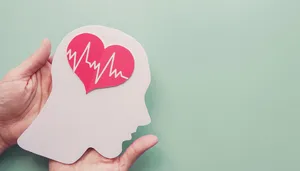Quality of life and well-being depend significantly on mental health. Just as we take care of our body, it is crucial to pay attention to the state of our mind, as both dimensions are intertwined, directly impacting our approach to everyday challenges. In this article, essential care will be explored to keep mental health in balance.
Adverts
We will cover examples, such as the influence of diet, the relevance of self-esteem, guidelines for dealing with stress and anxiety, and the identification of warning signs. Understanding and recognizing the importance of this topic is fundamental to achieving a full and harmonious life. Read on to discover ways to strengthen your mental health and support your overall well-being.
Main precautions to maintain mental health
Maintaining mental balance is crucial for quality of life and well-being. This dimension encompasses emotional, psychological and social aspects, requiring special attention. A key way to maintain mental health is through regular physical activity.
Physical exercise releases endorphins, responsible for the feeling of pleasure and well-being, reducing stress and anxiety. Furthermore, a balanced diet is vital, directly influencing mental health, as essential nutrients such as vitamins, minerals and omega-3 are fundamental for proper brain function.
Maintaining positive self-esteem is equally vital for mental health, valuing personal achievements contributes to emotional and psychological well-being. Another essential practice is learning to manage everyday stress and anxiety. Adopting relaxation techniques, such as meditation and deep breathing, helps reduce stress and promotes mental tranquility.
Finally, it is crucial to be aware of mental health warning signs, such as sudden changes in mood, loss of interest in pleasurable activities, difficulty concentrating and changes in sleep. These may indicate the need to seek professional help. By incorporating these precautions, it is possible to maintain your health and enjoy a more balanced and happy life.
How diet influences mental health
Mental health is intrinsically linked to nutrition. What we ingest directly impacts brain performance, influencing mood, energy and ability to deal with stress. Maintaining a balanced and nutritious diet is crucial to preserving mental health.
Nutrient-rich foods, such as fruits, vegetables, whole grains, and lean proteins, provide the essential elements for proper brain function. On the other hand, a diet lacking in nutrients can result in deficiencies that are harmful to mental health.
The absence of specific vitamins and minerals, such as complex B, magnesium and omega-3, may be associated with conditions such as depression and anxiety. Furthermore, certain foods have a direct influence on mood. Intake of tryptophan, present in foods such as turkey and salmon, can increase the production of serotonin, a neurotransmitter linked to well-being and happiness.
Therefore, it is imperative to take care of our diet, ensuring that our body and brain receive the nutrients necessary for mental health. A balanced diet, combined with healthy habits, such as regular physical exercise, contributes significantly to mental well-being.
The importance of good self-esteem for mental health
A person's mental health is profoundly influenced by self-esteem, which involves perception, appreciation and feelings towards oneself. Maintaining positive self-esteem is crucial for emotional and psychological well-being, allowing you to face challenges in a resilient way.
Confidence in one's own abilities, a realistic view of strengths and limitations are aspects that stand out when we have healthy self-esteem. On the other hand, low self-esteem can result in mental health problems, such as anxiety, depression and stress. Constant self-criticism and lack of personal appreciation undermine self-confidence, generating feelings of incapacity and demotivation.
Therefore, maintaining mental health requires attention to self-esteem. Practices such as self-care, recognizing achievements, cultivating positive thoughts and establishing healthy limits in relationships are fundamental to this care.
Tips for dealing with stress and anxiety in everyday life
Contemporary daily life often brings challenges to mental health, with stress and anxiety being recurring issues. Fortunately, there are helpful suggestions for meeting these daily challenges. It is essential to understand that self-esteem is an aspect in constant development, something that we can strengthen throughout our lives, and not a fixed attribute.
1. Practice relaxation techniques
By working on our self-esteem, we are investing in our overall health and well-being. One of the most effective ways to deal with stress and anxiety is to practice relaxation techniques such as deep breathing, meditation and yoga. These practices can help calm the mind and body, reducing stress levels.
2. Establish healthy limits and maintain a balanced routine
Often, the overload of tasks and responsibilities causes stress and anxiety. It’s crucial to set healthy boundaries and say “no” when necessary. Prioritize your needs, set aside time for rest and relaxation. Maintaining a balanced routine can reduce stress and anxiety. Try creating regular schedules for sleep, eating and exercise. Additionally, set aside time for fun and enjoyed activities.
3. Seek emotional support
When facing stress and anxiety, it is crucial to seek emotional support. Talking to loved ones you trust or considering assistance from a professional, such as a psychologist, is essential. Sharing your concerns with someone can make a significant impact. By following these guidelines and preserving your mental health, you will be making progress towards more effective and healthy management of stress and anxiety.
How to identify the warning signs
It is crucial to observe warning signs for mental health, as they can signal the need to seek professional help and adopt measures to preserve emotional balance. Identifying these signs early helps prevent the intensification of mental health problems.
One of the main manifestations of alert lies in the sudden change in behavior. If a person demonstrates substantially different behavior, such as social isolation, heightened irritation, deep melancholy or constant agitation, this may indicate that something is out of the ordinary.

The persistence of negative feelings, such as sadness, anxiety, fear or anger over time is an important warning. These prolonged intense feelings may suggest the presence of a mental or emotional disorder. Additionally, changes in sleep, appetite, and energy also indicate warning signs for mental health.
If someone is experiencing difficulty sleeping, loss of appetite or constant fatigue, it is crucial to pay attention. Other warnings include problems concentrating, loss of interest in pleasurable activities, recurring thoughts of death or suicide, and memory or reasoning issues.
If these symptoms persist and impact daily life, seeking professional help is essential. In short, being aware of mental health warning signs is vital to ensuring emotional well-being. If you or someone you know presents these signs, do not hesitate to seek help from a mental health professional.



